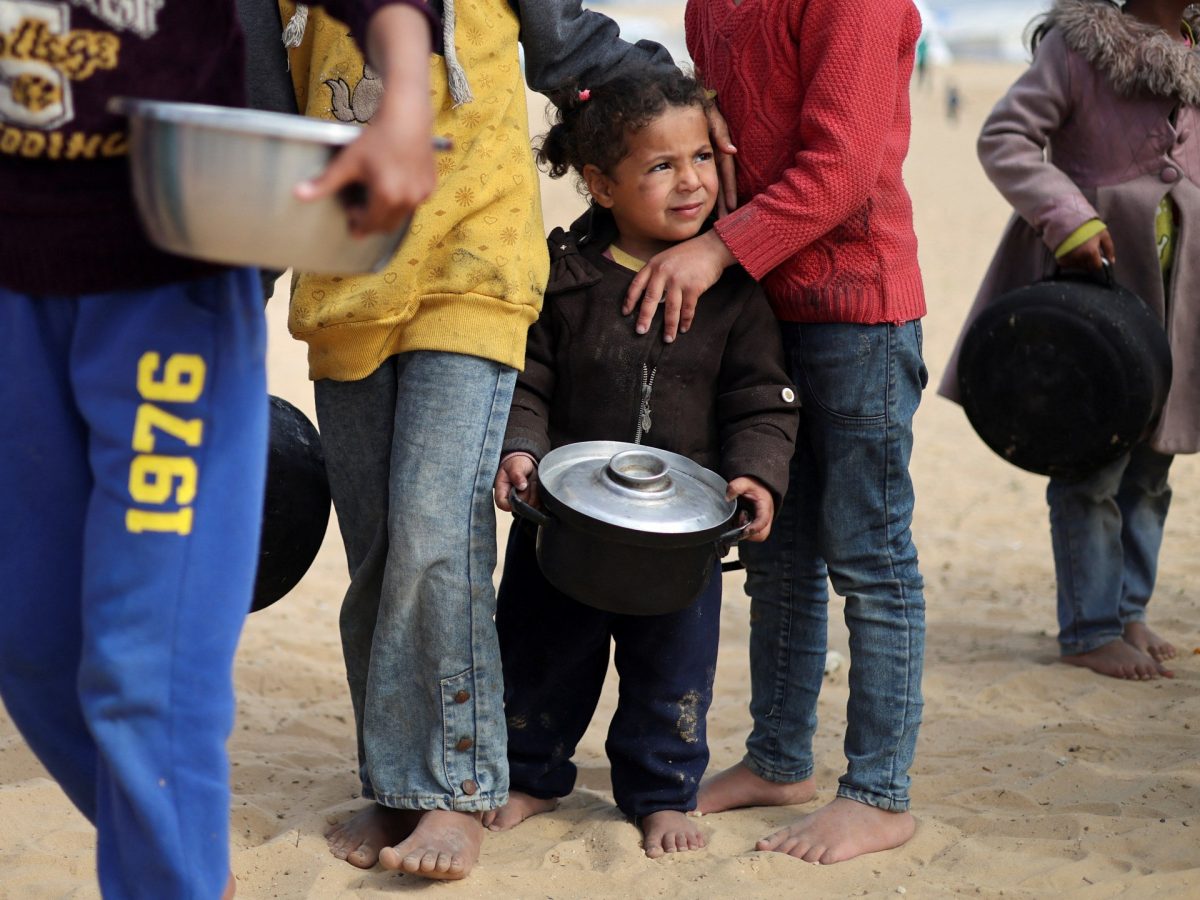The warnings on Tuesday came as footage from northern Gaza showed Israeli soldiers again opening fire on Palestinians gathering to collect food in the area.
It was not immediately clear if the shooting led to deaths or injuries.
Israel’s war on Gaza, now in its fifth month, has killed nearly 30,000 Palestinians, most of them women and children.
Israel’s subsequent military campaign – which has included daily air attacks, a ground offensive into north and central Gaza and the closing of all but one crossing point into the territory – has laid much of the Palestinian enclave to waste and triggered a worsening humanitarian crisis.
“Here we are, at the end of February, with at least 576,000 people in Gaza – one-quarter of the population – one step away from famine,” Ramesh Rajasingham, the deputy chief of the UN humanitarian agency (OCHA), told the UN Security Council (UNSC).
One in six children under the age of two in northern Gaza suffers from acute malnutrition and wasting and practically all the 2.3 million people in the Palestinian enclave rely on “woefully inadequate” food aid to survive, he told the meeting on food security in Gaza.
“If nothing is done, we fear widespread famine in Gaza is almost inevitable and the conflict will have many more victims,” he stated.
Rajasingham added that the UN and aid groups face “overwhelming obstacles just to get a bare minimum of supplies into Gaza”. These include crossing closures, restrictions on movement and communication, onerous vetting procedures, unrest, damaged roads and unexploded ordnance, he continued.
In Geneva, Jens Laerke, another OCHA spokesman, told reporters Israel’s actions made it almost impossible to deliver aid to Gaza.
“Aid convoys have come under fire and are systematically denied access to people in need. Humanitarian workers have been harassed, intimidated or detained by Israeli forces, and humanitarian infrastructure has been hit,” he said.
The World Food Programme (WFP) announced it was “ready to swiftly expand and scale up our operations if there is a ceasefire agreement”.
In the meantime, “the risk of famine is being fuelled by the inability to bring critical food supplies into Gaza in sufficient quantities and the almost impossible operating conditions faced by our staff on the ground”, Carl Skau, the WFP’s deputy executive director, told the UNSC.
“If nothing changes, a famine is imminent in northern Gaza,” he added.
The WFP earlier this month suspended delivering food aid to northern Gaza, which has almost been completely cut off from aid since late October, after its convoys came under Israeli gunfire and were looted by desperate and hungry Palestinians.
UN agencies say all planned aid convoys into the north of the territory have been denied by Israeli authorities in recent weeks. The last allowed in was on January 23, according to the World Health Organization (WHO).
A spokesman for the UN Secretary-General Antonio Guterres said hundreds of trucks carrying aid were ready and waiting at the border between Gaza and Egypt.
“WFP colleagues tell us that they have food supplies at the border with Gaza and, with certain conditions, they would be able to scale up feeding up to 2.2 million people” across the Strip, Stephane Dujarric told reporters.
“Almost 1,000 trucks carrying 15,000 metric tonnes of food are in Egypt ready to move,” he added.
Israel, however, denied blocking aid.
Speaking at the UNSC, Israel’s Deputy Ambassador to the UN Jonathan Miller countered that “it is not Israel who is holding up these trucks”, instead placing the blame on the UN, which he said must distribute aid “more effectively”.
“There is no limit to the amount of humanitarian aid that can be sent to the civilian population of Gaza,” he said, adding that since the beginning of 2024, Israel had only denied 16 percent of requests to deliver aid and those were due to risks the shipments could end up in Hamas’s hands.
The desperate situation in Gaza prompted a rebuke from the United States.
Robert Wood, the deputy US ambassador to the UN, urged its ally Israel to keep border crossings open for humanitarian aid deliveries to Gaza and to facilitate [the] opening of more crossings.
“Simply put, Israel must do more,” he said, adding “We continue to call on Israel to improve deconfliction procedures to ensure aid can move safely and securely.”
